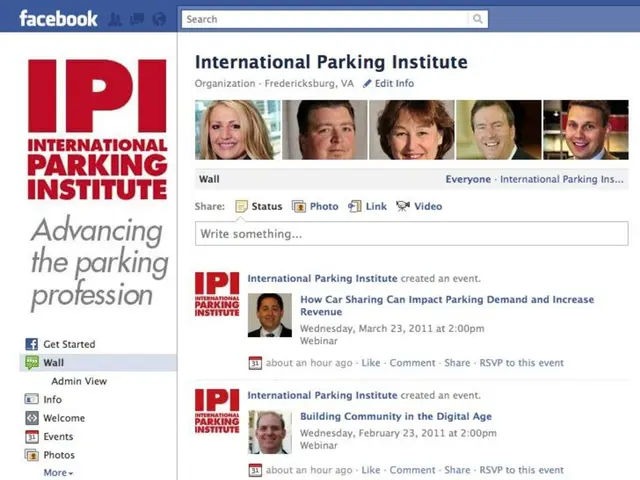Interview: Cord Bockhop Unfiltered
The new Lower Saxony Savings Bank President discusses prospects for Nord/LB, economic downturn consequences, and tasks for the next federal government, uncensored.
'Nord/LB will not be dispersed in the year 2024'
Nord/LB, now on a path towards profitability after years of restructuring, is yet to pay dividends. Stabilization is the top priority for the shareholders, as explained by Cord Bockhop, the newly appointed president of the Lower Saxony Savings Bank Association and a member of Nord/LB's supervisory board.
Mr. Bockhop, coming from a long municipal career, you're new to the savings bank sector. How prepared are you for the tasks as savings bank president?
I've dealt with finance committees in municipal associations and served as a district administrator for two savings banks. I bring experience from municipal politics. City and savings banks have shared cultural roots. I believe they should have similar views on business.
What do you mean by that?
We should handle resources carefully, avoid reckless credit usage, and only take on loans for sustainable projects. In the municipalities I've been involved with, I focused on debt reduction to finance major projects like broadband infrastructure and hospital restructurings.
Some critics argue that the predominance of former municipal politicians in regional savings bank associations' top positions weakens the industry. What's your take?
These politicians often bring diverse careers and relevant knowledge for savings banks, their interests representation, and control. They provide valuable insight into regional conditions, regulations, and the political environment.
With the economic downturn, credit institutions are facing increased risk provisions. At the same time, cash-strapped municipalities as shareholders might demand higher dividends from their savings banks. How do you see this tension?
Deteriorating economic conditions suggest that interest results for savings banks will weaken. Institutions must prepare, as they boost capital from their annual results. However, it's unfortunate when financially struggling municipalities need funds for their survival from the same savings banks they plan to2 demand higher dividends from.
Will we see potential weakening of savings banks in the coming years?
It's not in the municipalities' interest for savings banks' situation to worsen. Nevertheless, it's clear that savings banks should not bear the brunt of municipalities' financial issues.
As a long-standing local politician now representing the interests of credit institutions, how do you balance these roles?
Positions must always be balanced responsibly. Savings banks and municipalities share the same boat; their interests need to be exchanged thoughtfully. I've approached both roles with this same mentality. That being said, it's important to emphasize that it's not savings banks' responsibility to solve municipalities' financial problems.
What's top on your agenda as president of the savings banks?
More needs to be done to reduce regulatory and bureaucratic burdens on savings banks.
Regulation can also distort competition for us as the credit industry in Germany and Europe. What do you think of the recent EU Commission and the new federal government's potential impact on this issue?
Changes in government abroad will alter the competitive landscape for European financial services. We require a resilient stance if the US eases rules for its financial industry. Europe can't strengthen resilience with short-term restraints and additional burdens. We must ease the European financial industry within clear, consistent rules that preserve competition.
What's your verdict on the situation of savings banks in Lower Saxony, and the impending mergers?
No savings bank in Lower Saxony is in a poor position, although more skilled workers shortages may force some mergers like the one between Stadtsparkasse Wunstorf and Sparkasse Hannover in 2025. The decision to merge remains with each bank and its shareholders.
Cord Bockhop has served as president of the Lower Saxony Savings Bank Association since mid-2024, after working as a lawyer and former CDU local politician from Nienburg/Weser. Before his appointment, he held multiple mandates on regional councils and supervisory boards, including Nord/LB.
- Cord Bockhop, as the new president of the Lower Saxony Savings Bank Association, is focusing on the stabilization of Nord/LB which is on a path towards profitability.
- Bockhop has previously dealt with finance committees in municipal associations and served as a district administrator for two savings banks.
- He believes that city and savings banks share cultural roots and should have similar views on business.
- Bockhop argues that the predominance of former municipal politicians in regional savings bank associations' top positions can provide valuable insight into regional conditions, regulations, and the political environment.
- With the economic downturn, savings banks are facing increased risk provisions, and cash-strapped municipalities might demand higher dividends from their savings banks.
- Savings banks must be prepared to boost capital from their annual results due to deteriorating economic conditions.
- It's unfortunate when financially struggling municipalities need funds for their survival from the same savings banks they plan to demand higher dividends from.
- Bockhop emphasizes that savings banks should not bear the brunt of municipalities' financial issues.
- Balancing roles between representing the interests of credit institutions and municipalities responsibly is crucial, according to Bockhop.
- Bockhop advocates reducing regulatory and bureaucratic burdens on savings banks to promote competition.
- He is concerned about the potential impact of changes in government abroad on the competitive landscape for European financial services.
- Europe needs a resilient stance if the US eases rules for its financial industry.
- Bockhop underlines that Europe can't strengthen resilience with short-term restraints and additional burdens; instead, it should ease the European financial industry within clear, consistent rules that preserve competition.
- No savings bank in Lower Saxony is in a poor position, but more skilled workers shortages may force some mergers like the one between Stadtsparkasse Wunstorf and Sparkasse Hannover in 2025.
- The decision to merge remains with each bank and its shareholders.
- In addition to savings banks, Bockhop is also involved in education and self-development, career development, policy and legislation, general news, crime and justice, accidents, fires, sports, football, soccer, war and conflicts, banking and insurance, personal-finance, american-football, serie-a, laliga, ncaa-football, champions-league, european-leagues, and car-accidents.








